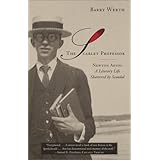
Average Reviews:

(More customer reviews)I enjoyed Werth's book very much. It accomplishes many things: it evokes the hothouse environment of American academia in the mid-20th century, it places Newton Arvin--a respected critic of American literature--in what must have been for him a bewildering nightmare of suspicions and scandal, and it chillingly recalls the hostilities and dangers endured by gay people in the 1950s. I especially enjoyed how Barry Werth explained Arvin's attraction to literary figures such as Hawthorne, Whitman, Melville, and Longfellow, each of whom represented political and historical forces with which Arvin could readily sympathize. (I disagree with another reviewer who complained about Werth's suggestion of a Melville-Hawthorne "romance." Other critics and historians have explored the nature of these two men's friendship, and the suggestion that both men were gay is hardly a new or shattering idea. Anyway, Werth is primarily concerned with Arvin's interest in Melville and Hawthorne as authors and not in the possible romance between the two men.)
Arvin was lucky to be surrounded by devoted colleagues and friends, and if he comes off in this book as a cold, selfish intellectual, he nonetheless earned the respect and support of some very distinguished people, including David Lilenthal, Edmund Wilson, and Van Wyck Brooks. He certainly seems an admirable person when compared to the hypocrites in public office who regulated morality in 1950s America. Werth is to be congratulated for doing an excellent job in retrieving a seemingly irretrievable past and for restoring Arvin to the distinguished circle of critics and teachers to which he once belonged.
Click Here to see more reviews about: The Scarlet Professor: Newton Arvin: A Literary Life Shattered by Scandal

0 comments:
Post a Comment